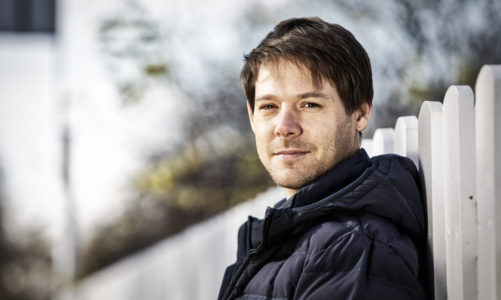Miloslav Cváček, the owner of the family company ISMM, which was founded in 1997 as a consulting company providing services to industrial companies in the fi eld of marketing, started his own small-scale production in 2007 with fi ve employees. He gradually built the ISMM Group from scratch; it now includes six thriving companies with more than 500 employees and a turnover of CZK 1.5 billion. The company is an important professional collaborator in the EU market but is also an important employer in the Moravian-Silesian region, going beyond the fi eld of engineering.
Your twenty-five-year business story is inspiring. Since the company’s product range includes the production of agricultural equipment, it can be said that you have ploughed a deep furrow from sales to production. How do you evaluate this journey?
That is very apt. When I moved from the role of manager to the role of entrepreneur, I did not even consider that I wanted to be some kind of big businessman. Rather, I wanted to pursue a career in consulting, marketing and controlling, which I had studied, enjoyed and continued to educate myself in. Then ISMM got into export marketing and eventually started its own production. So, to recap briefl y, it was destiny and certain life encounters that led to the final state. The decisive factor was that I learned German during my working stay in Austria, and then I also met Mr Spädt from Braunschweig, with whom we worked on cooperation orders for Czech companies. The key milestone, however, was the decision to buy the fi rst production facility in Jistebník in 2007 and to employ the fi rst fi ve workers. In fact, thanks to this, I started my career as an entrepreneur who not only advises on how to sell products but also produces them himself.
I believe that my story could be inspiring for other entrepreneurs who may think that it is not worth it or that they are not able to run their own businesses and achieve good results. I can be an example that it can be done. I did not have any capital at the beginning, and I did not privatise. As far as my career is concerned, I was moving from manager to entrepreneur, so I did not have any major contacts in my industry to help me get started. Considering that I started from scratch, the result is probably good, and I am proud that we are a Czech family business.

You own a purely Czech, regional, and nowadays we can say a family company focused on export. What are your business and management priorities?
I have always been inclined towards management; after all, I studied it for my PhD. Since 1992, when I started working in managerial positions, my ambition has been to be a good manager. I was inspired by American literature and even Czech business stories. I tried to get the best out of everything and design my own way of managing my subordinates. I am quite consistent, and I still apply the methods I used twenty-five years ago in terms of management, leadership, management and motivation of the team. In fact, I have only adapted to the digital and IT age. I have always believed that if you do a good job, you get results. This means that my focus has been mainly on doing quality work on all fronts and that quality work will then ensure that the business grows, new orders come in, and finally, that all employees are happy.
Reducing the energy intensity of production creates the need for innovation. Which innovations are crucial for your
company?
Energy intensity is a key issue at the moment, and we are constantly confronted with it due to the surge in energy prices. The advantage of our business is that energy accounts for around 3–4% of costs, so it is not a key cost factor. However, we are still forced to address this issue. One strategy is to innovate to find technologies that are more efficient, such as alternative sources like solar. But that is, of course, in the long run. Another strategy is organisational measures, whether it is switching off lights, switching off equipment that is not necessary for operation, or observing technological pauses in production. All of this means putting savings into practice. I think that every company can save 5–10% just by taking these measures.
Otherwise, such a basic process innovation, in terms of the production system, is the implementation of lean management. We have a special programme for this called PENALTA, in which we aim to innovate all the processes that we have defi ned as critical within our production. We started working on this four years ago, and over the years, we have made tremendous achievements. I dare say we have reached the level of Western companies.
The ISMM Group has become a major collaborator in the EU. How important is marketing the company in this turbulent market?
Billions of euros are being circulated in the EU cooperative market, and Western companies are generally trying to move primary production further east. They concentrate mainly on their own product, research, and development. For this, they have some sales and marketing support, distribution and service network. Otherwise, they mainly do assembly or strategic production where they have special know-how. So anything outside that scope is a potential opportunity for professional collaborators. As a result, the longer my company has been in existence, the more it has been registered in this European cooperation business, and the more we get more enquiries for cooperation of all kinds: from extremely high-end companies to companies that are specific not only in the fi eld of agricultural machinery but also in construction and other segments. In this sector, references and experience are simply the best marketing.
Thank you for the interview.




